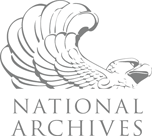 Webcontent-Anzeige
Webcontent-Anzeige

 Webcontent-Anzeige
Webcontent-Anzeige
An interview with Pare
On a cold and rainy St. Patrick’s Day in 1976, Alan Fern of the Library of Congress interviewed Pare Lorentz, legendary documentary filmmaker of the 1930s and 40s. They met at the Madison Hotel in Washington, D.C. just blocks from the White House where forty years before Lorentz had provided a private viewing of his film The Plow That Broke the Plains for President Franklin D. Roosevelt.
From that point on, Pare Lorentz was known as “FDR’s filmmaker.” In all, Lorentz would make three ground-breaking and award-winning films: The Plow That Broke the Plains (1936), The River (1938), and The Fight for Life (1940). In this never-before-heard series of recordings, a reflective Pare Lorentz recounts the influences and struggles he and his small, underfunded band of filmmakers faced in the making of what many believe were the first of the great documentary films in the 20th century.
 Webcontent-Anzeige
Webcontent-Anzeige
 Webcontent-Anzeige
Webcontent-Anzeige
Chapter 1: I Had No Particular Horizon
Chapter 1 Audio Download
[Pare Lorentz:] I came to New York City in the summer of 1925 in an old Model T Ford and put up at the Vanderbilt Hotel on a due bill. I don’t know whether you know about due bills? Hotels would advertise in publications, and then the editors and publishers could take out free lodging. I was editor of the West Virginia Moonshine, a humorous magazine at West Virginia University. I had been elected editor. I also had been elected the head of the southern humorous college magazines of southern universities and colleges and one of my assignments was to come to New York and collect over a quarter of a million dollars that a scoundrelly advertising agency owed to the southern universities.
I was a pre-law student and I was discontented with the university and with the prospect of becoming a lawyer because the law faculty used to, over a glass of moonshine, advise me the only way to make a living as a lawyer in West Virginia was either to bribe a jury for the coal operators or bribe a jury for the United Mine Workers.
So, I wandered around the city and went over to the Four A’s advertising outfit [American Association of Advertising Agencies] and met a fellow there that said he was going to China and why didn’t I go get his job. So I went to Harrison, New Jersey and met up with an ex-marine major from North Carolina. And he employed me as the editor of The Edison Sales Builder, a house organ for the Edison Mazda Lamp Company totally owned by General Electric.
I had no particular horizon. I had studied music. As a youngster I gave several fiddle concerts at West Virginia Wesleyan College where I studied music while I was going to high school in Buckhannon, West Virginia. Well, I was discontented with music critics then and now. But, I had no horizon, I thought I might return and go to law school. But, New York City at 25 was a gold cab. It was the beginning of an enormous bull market. It was a place that attracted young people from the interior of America greater or more than it does now. It was a place where the theater was incredibly exciting, the beginning of the Theatre Guild, the beginning of reality on the stage, What Price Glory and the beginning of the Marx Brothers. The general ebullience and excitement of the city was quite exciting to all the people there, certainly a youngster from West Virginia.



